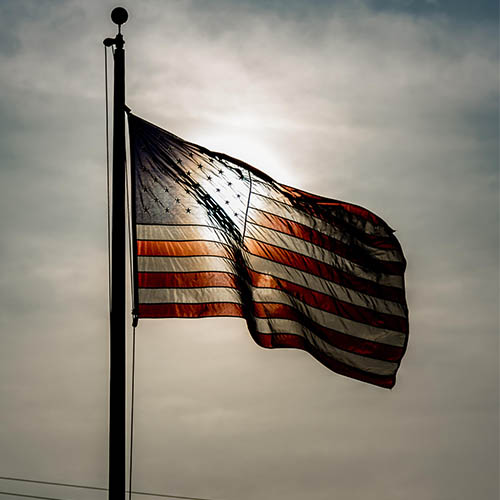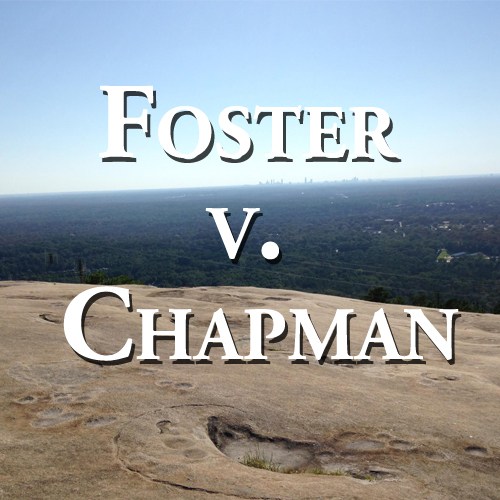Menu
Hot-Topics
November 27, 2025 | SCOTUS Adds Second Amendment Case to Docket
Tag: Constitutional Law

Brady v Maryland: Suppression of Evidence Violates Due Process
In Brady v Maryland, 373 U.S. 83 (1963), the U.S. Supreme Court held that prosecutors must fully disclose to the accused all exculpatory evidence in their possession. The Court’s holding is commonly known as the “Brady Rule.” The Fac...

US v Bryant: Tribal Convictions and the Constitution’s Right to Counsel
In US v Bryant 579 ___ (2016), the U.S. Supreme Court held that the inclusion of tribal-court convictions as predicate offenses under a federal domestic violence law targeting repeat offenders does not violate the Sixth Amendment’s right to counsel...

Puerto Rico v Franklin California Tax-Free Trust: Puerto Rico Loses Debt Restructuring Suit
Puerto Rico is having a bad month, at least as far as the U.S. Supreme Court is concerned. In Commonwealth of Puerto Rico v Franklin California Tax-Free Trust 579 U.S. ___ (2016), the justices struck down a law that would have allowed public utilitie...

Williams v Pennsylvania: Judge’s Failure to Recuse Violated Due Process
In Williams v Pennsylvania, the U.S. Supreme Court held that judges must recuse themselves in cases that they once prosecuted 579 U.S. ___ (2016). By a vote of 5-3, the justices held that a Pennsylvania judge’s participation in a death penalty case...

The Pendleton Civil Service Act
The Pendleton Civil Service Act, which was enacted in 1883, established a merit-based system for federal employment. The landmark legislation effectively ended the controversial “spoils system,” which was largely based on political party affiliat...

Foster v Chapman: Excluding Jurors Based on Race
In Foster v Chatman (2016), the U.S. Supreme Court held that prosecutors purposely discriminated against a Georgia man facing the death penalty when they dismissed two black jurors during jury selection. The Court’s narrow decision was largely base...

Antiquities Act of 1906
Signed into law by President Theodore Roosevelt in 1906, the Antiquities Act was the first federal regulation to protect the cultural and natural resources of the United States. It resulted from concern over decades of looting and destruction of Nati...

The 4-4 Supreme Court Punts in Zubik v Burwell
The 4-4 Supreme Court Punts in Zubik v Burwell The U.S. Supreme Court declined to address the merits of Zubik v. Burwell, at least for this term. Instead, the Court’s per curium opinion on the Affordable Care Act’s contraception mandate directs ...

Downes v. Bidwell: Does the Constitution Follow the Flag?
Downes v. Bidwell: Does the Constitution Follow the Flag? In Downes v. Bidwell, 182 U.S. 244 (1901), the U.S. Supreme Court held that the rights and protections of the Constitution do not automatically apply to U.S. territories. The case is one of t...

Welch v. United States: Landmark Sentencing Decision Must Be Applied Retroactively
Welch v. United States: Landmark Sentencing Decision Must Be Applied Retroactively On April 18, 2016, the U.S. Supreme Court held that its landmark criminal sentencing decision in Johnson v. United States must be applied retroactively. The justices ...
Previous Articles
Key Takeaways from Oral Arguments in Court’s Controversial Voting-Rights Case
by DONALD SCARINCI on November 12, 2025
The U.S. Supreme Court recently heard oral arguments in Louisiana v. Callais, which involves a key ...
Key Cases to Watch During the Supreme Court’s November Sitting
by DONALD SCARINCI on November 5, 2025
The U.S. Supreme Court’s November sitting begins on November 3 and concludes on November 12, 2025...
SCOTUS Clears Way to Terminate Protected Status for Venezuelan Nationals
by DONALD SCARINCI on October 29, 2025
On October 3, 2025, the U.S. Supreme Court granted an emergency request from the Trump Administrati...
The Amendments
-
Amendment1
- Establishment ClauseFree Exercise Clause
- Freedom of Speech
- Freedoms of Press
- Freedom of Assembly, and Petitition
-
Amendment2
- The Right to Bear Arms
-
Amendment4
- Unreasonable Searches and Seizures
-
Amendment5
- Due Process
- Eminent Domain
- Rights of Criminal Defendants
Preamble to the Bill of Rights
Congress of the United States begun and held at the City of New-York, on Wednesday the fourth of March, one thousand seven hundred and eighty nine.
THE Conventions of a number of the States, having at the time of their adopting the Constitution, expressed a desire, in order to prevent misconstruction or abuse of its powers, that further declaratory and restrictive clauses should be added: And as extending the ground of public confidence in the Government, will best ensure the beneficent ends of its institution.
Awards





